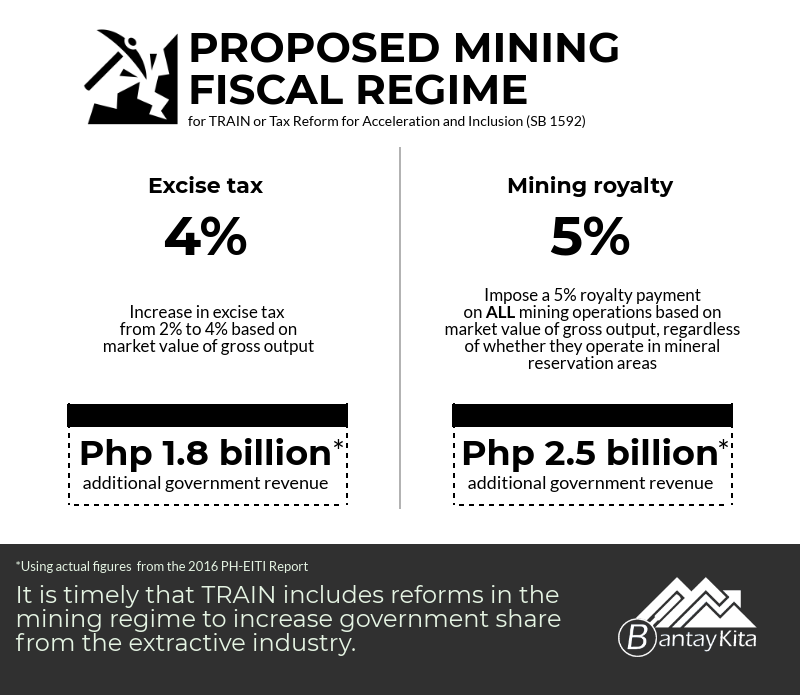|
The administration is designing a new comprehensive tax reform known as TRAIN or Tax Reform for Acceleration and Inclusion (SB 1592) which includes reforms in the mining fiscal regime. Mining has failed to contribute significantly to government revenues. Based on figures reflected in the 2016 Ph-EITI Report, large scale metallic mines have contributed 1.1% to GDP. It is timely that TRAIN includes reforms in the mining regime to increase government share from the extractive industry. TRAIN proposes increase in excise tax from 2 percent to 4 percent based on market value of gross output. While other revenue streams remain, royalty payments in mineral reservations at 5 percent, indigenous people’s royalty at 1 percent, and 30 percent of net taxable income as corporate tax. Bantay Kita recommends imposing 5 percent mineral royalty payments for all mining operations based on market value of gross output. The current fiscal regime imposes 5 percent royalty payments only to mining operations situated in mineral reservations. To date, only four provinces have been declared by government as mineral reservations: (1) Zambales in Central Luzon, (2) Surigao del Norte, (3) Surigao del Sur, and (4) Dinagat Islands in the CARAGA Region. The government should maximize its gains from mineral resources. Extracting minerals is a one-time opportunity to improve people’s lives.
The effective tax rate (ETR) is the percentage of government’s share from total profits before tax. While, the average tax capture (ATC) is percentage share of government payments in gross value. With TRAIN and imposing the 5 percent royalty to all mining companies gives an ETR for all commodities and sites and ATC, 46% and 19% respectively. Using actual figures from the 2016 PH-EITI Report, the increase in excise tax from 2 to 4 percent, and imposition of 5 percent royalty on all mining operations will provide the government additional Php 4.3 billion. Recommendations
0 Comments
Leave a Reply. |
Previous Posts
May 2024
Topics
All
|
What We Do |
Know More |
About Us |
Contact Us
[email protected] | +(63) 917 5105 879 1402 West Trade Building, West Avenue, Brgy. Phil-Am, Quezon City, Philippines |

